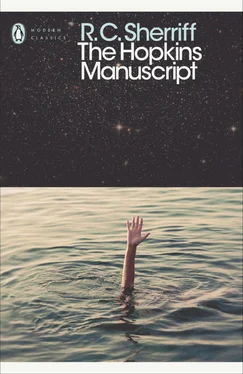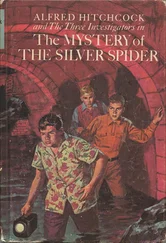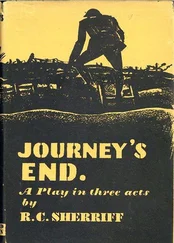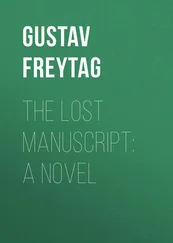Роберт Шеррифф - The Hopkins Manuscript
Здесь есть возможность читать онлайн «Роберт Шеррифф - The Hopkins Manuscript» весь текст электронной книги совершенно бесплатно (целиком полную версию без сокращений). В некоторых случаях можно слушать аудио, скачать через торрент в формате fb2 и присутствует краткое содержание. Год выпуска: 2018, ISBN: 2018, Издательство: Penguin Books, Жанр: sf_postapocalyptic, humor_satire, на английском языке. Описание произведения, (предисловие) а так же отзывы посетителей доступны на портале библиотеки ЛибКат.
- Название:The Hopkins Manuscript
- Автор:
- Издательство:Penguin Books
- Жанр:
- Год:2018
- ISBN:978-0-241-34908-3
- Рейтинг книги:4 / 5. Голосов: 1
-
Избранное:Добавить в избранное
- Отзывы:
-
Ваша оценка:
- 80
- 1
- 2
- 3
- 4
- 5
The Hopkins Manuscript: краткое содержание, описание и аннотация
Предлагаем к чтению аннотацию, описание, краткое содержание или предисловие (зависит от того, что написал сам автор книги «The Hopkins Manuscript»). Если вы не нашли необходимую информацию о книге — напишите в комментариях, мы постараемся отыскать её.
The Hopkins Manuscript — читать онлайн бесплатно полную книгу (весь текст) целиком
Ниже представлен текст книги, разбитый по страницам. Система сохранения места последней прочитанной страницы, позволяет с удобством читать онлайн бесплатно книгу «The Hopkins Manuscript», без необходимости каждый раз заново искать на чём Вы остановились. Поставьте закладку, и сможете в любой момент перейти на страницу, на которой закончили чтение.
Интервал:
Закладка:
I felt quite touched by this spontaneous little gesture of affection, and although, on the following morning I realised that in my emotion I had forgotten to give them their evening meal, I honestly believe that they, too, had forgotten their meal, and had been moved to a devotion that few suspect in the domestic fowl.
My dinner party for the Vicar and his wife and Mr Fayne-Higneth was a great success and pronounced delightful by all concerned. Mr Fayne-Higneth, Lord Burgin’s new agent, was a shy young man with a slight stammer that only became marked in moments of stress. When, for instance, I doubled his three clubs in the first rubber there was an embarrassing pause, and he had to struggle quite hard before he could say that he redoubled. But I quickly set him at ease by laughing heartily when one of the doors of my bookcase flew open by itself. It frequently did this, but I said it was the family ghost and he was so amused that his stammer left him for the rest of the evening. The Vicar told me that Fayne-Higneth was a distant relative of Lord Burgin himself – an old Oxford man and in every way a suitable acquaintance. I felt an immediate friendship for him and told him to drop in whenever he liked.
Considering how rarely I entertain I think the dinner prepared by Mrs Buller was excellent. I like to be modern in every way, so sherry and small cheese straws were served in the library before going in to dinner. The party went with a swing from the very beginning. The Vicar and his wife read over an article I had recently written upon ‘Metallurgists of the Nineteenth Century’, and while we waited for the dinner-gong I showed Mr Fayne-Higneth my egg chart for September.
Dinner was a few minutes late because the village girl who helped Mrs Buller dropped the gong stick behind the radiator in the hall, but the party was too happy to notice a trifling delay and the gong sounded just as well with a tablespoon.
The meal itself was practically ‘home-produced’. An artichoke soup was followed by an excellent boiled fowl (which was in fact Victoria III, the prize hen that caused such a stir in South Hampshire poultry circles in the spring of the previous year). There was a sweet omelette of damson jam and a fine Camembert cheese which was included, as the Vicar wittily put it, ‘to show our French allies that there was no ill feeling’.
After dinner we drew a table up to the library fire and played bridge until after eleven. Habit was beginning to make the keeping of my secret an easier matter now – I behaved quite normally at the card table and discussed the Summer Bazaar as if nothing were likely to happen!
And this was not entirely a matter of play-acting. My belief that the whole ‘moon business’ was nothing but an absurd scare upon the part of a few super-clever ‘experts’ was growing firmer every day. I called to mind the numberless ‘experts’ who had predicted hard winters that had turned out warm: ‘experts’ who had predicted Stock Exchange slumps which turned out to be booms. I despised the experts: I snapped my fingers at them. For the future I would trust my own common sense that told me the moon was temporarily misplaced and would find its proper course again without trouble.
I lost 3s 9d and Fayne-Higneth 2s 6d, but I was glad the Vicar and his wife returned home 6s 3d the richer, for the living is a poor one and the Vicarage much too big an expense for them. I walked down to the gate with the party, all of whom readily accepted my invitation to dine again on the following Tuesday.
I returned to my house much happier than I had been for a long time. The dear old Vicar and his wife gave such confidence, such symbolism of the permanency of English life that I slept sounder than for many nights and did not wake until my tea came up at eight o’clock.
My growing belief that everything would be all right caused me to look forward to the next meeting of the British Lunar Society with the keenest relish. I sincerely believed that the President would apologise for arousing our alarm: that he would announce the discovery of a scientific miscalculation: that the experts were wrong and that the moon, the good, steady old moon, was as right as rain.
My arrival at the meeting on the 22nd October fully confirmed my optimism. As I ascended the narrow stairs I heard the old familiar buzz of cheerful talk. As I entered the room I saw happy, excited faces upon all sides and the same old-time jollity of members greeting one another. So buoyant was the atmosphere that I believed the news must already have spread – the news that all was well with our good old earth.
I suppose the truth was that everybody had reacted as I had done. Everybody had persuaded themselves in their own ways that the whole thing was a scare and that we should hear the fact confirmed in a few moments.
Nothing else can explain the buoyant confidence and heartiness of our arrival – or the ghastly, sickening silence that fell upon us as the President spoke his first words…
‘There is not much to report, gentlemen – except that the moon continues to approach the earth at the same increasing ratio of speed…’
It seemed as if the very lights of the room grew pallid as the blood drained from two hundred cheeks. So pitiful are the limits of human reason that I believe this casual confirmation was a ghastlier shock than the first news of two weeks ago.
The significance had been too vast for us to understand in that one short statement of words at our first meeting. The meeting of the 8th October had passed sentence of death, but still left us the right of appeal. The counsel of our dreams had given us high hopes of a reprieve. This second meeting was the Court of Appeal: judgement was confirmed: there was no reprieve.
The President continued, but there was none of that rigid, incredulous alertness of the first meeting. There was a limpness of despair in those silent bodies, hunched in their cane-bottomed chairs. I doubt if many of us were really listening to his words in detail. Through a haze of despair I heard the President say that two nights before he had attended a meeting of the Royal Society at which the Astronomer Royal had amplified his earlier statements.
The moon was now 203,800 miles away and the rate of its approach had risen to 1,238 miles in 24 hours. One small miscalculation had arisen concerning the time of the moon’s collision with the earth on the 3rd May. It would be at 8.15 pm instead of 8.03 pm as originally calculated. Somebody murmured ‘More time for dinner!’, but the joke fell as flat as mud.
I felt no gratitude whatever at the gift of an extra twelve minutes, and as the President embarked upon a long and technical explanation of Magnetic Attraction I found myself growing impatient and angry. What did all this scientific rot amount to if we were blasted to eternity in six months’ time! – I grew furiously angry at this imbecile waste of precious life. Here sat a hundred healthy, intelligent living creatures – stagnant and useless – doing utterly nothing with precious minutes that were relentlessly ticking away! Yet what else was better? How could I face some bawdy musical comedy – or the silence of that dreary curtained library in my home?
As I glanced at those hopeless, sunken faces I realised for the first time how lucky I was to be alone – how infinitely more terrible for those with wives and children – who had to keep this awful secret from those who by instinct could see far into their husbands’ minds…
If only we men in this room could live henceforward together – could talk each day together!… it was the terrible loneliness of our separation that brought the cruelty of hell.
The President told us that shortly after Christmas the moon would have approached within 150,000 miles. Its increased size and general appearance would then become so obvious to the naked eye that no further concealment from the public would be possible. The full moon of the week beginning Boxing Day might pass without comment if weather conditions were against clear visibility, but the moon at full in the third week of January was certain to end the Secret.
Читать дальшеИнтервал:
Закладка:
Похожие книги на «The Hopkins Manuscript»
Представляем Вашему вниманию похожие книги на «The Hopkins Manuscript» списком для выбора. Мы отобрали схожую по названию и смыслу литературу в надежде предоставить читателям больше вариантов отыскать новые, интересные, ещё непрочитанные произведения.
Обсуждение, отзывы о книге «The Hopkins Manuscript» и просто собственные мнения читателей. Оставьте ваши комментарии, напишите, что Вы думаете о произведении, его смысле или главных героях. Укажите что конкретно понравилось, а что нет, и почему Вы так считаете.












